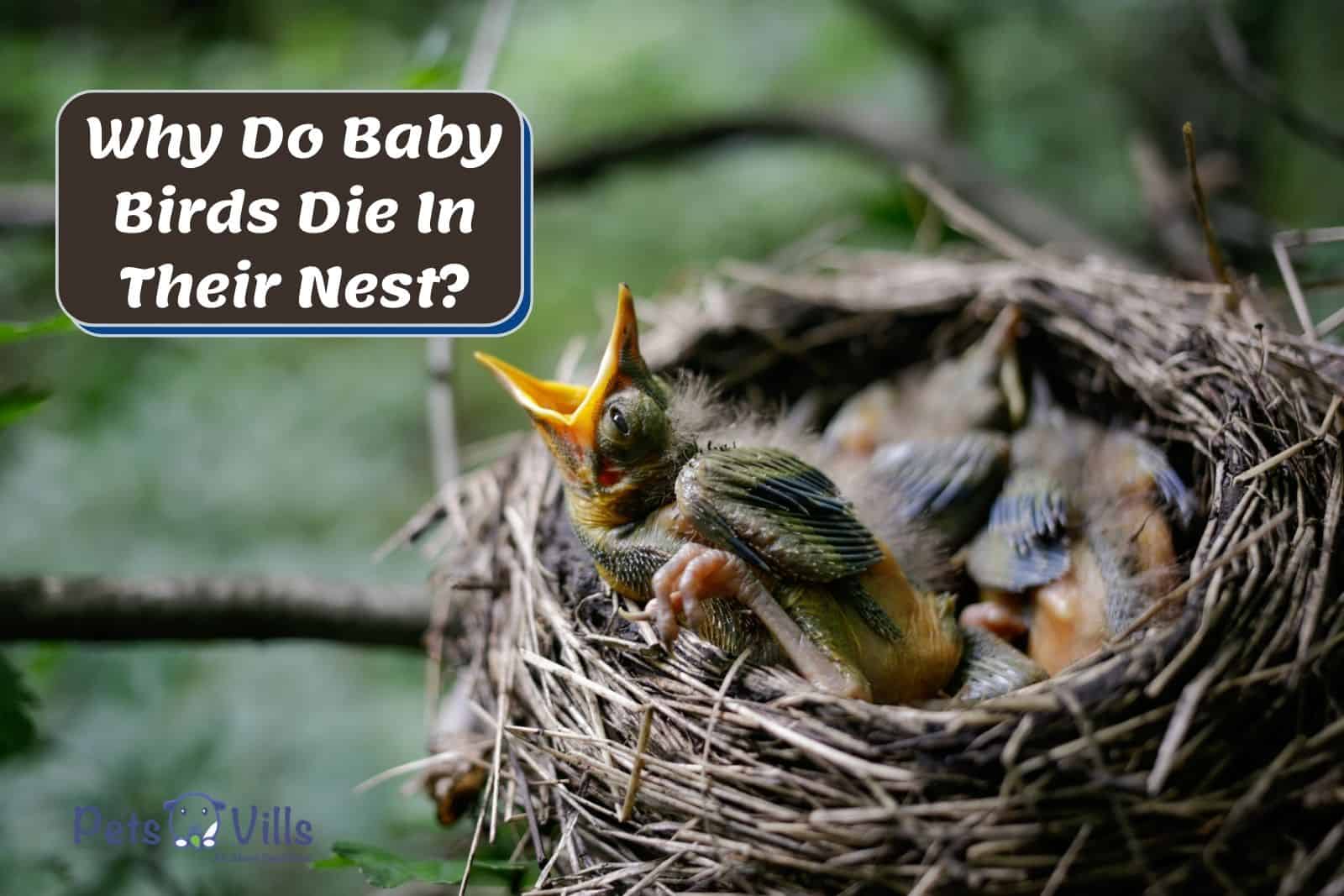As sad as this may seem, baby birds dying in their nest is not an uncommon thing. But a twitcher like me will be curious to know precisely why baby birds die in the nest.
Through my extensive research, I’ve discovered quite a several reasons why baby birds die.
Read along to find out more.
Check: Will Birds Push Their Siblings Out of the Nest?
Table of Contents
Why Do Baby Birds Die in the Nest?
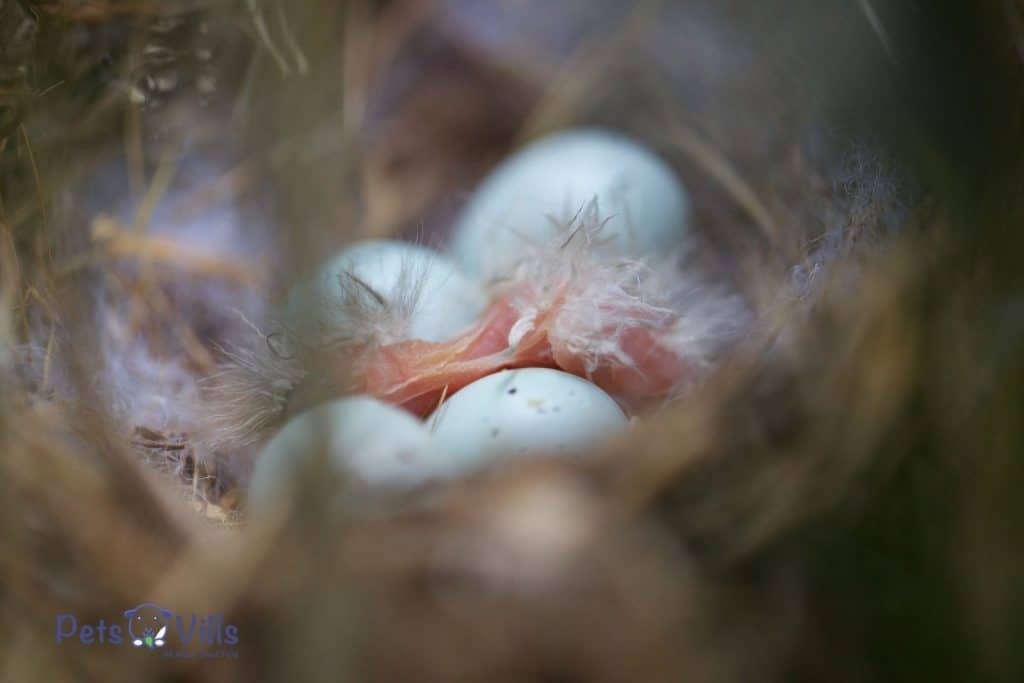
The average nestling mortality [1] occurs from 50 to 90 percent due to several reasons. Baby birds are very weak and fragile when they’re just starting life.
They’re still dependent on their parents, who take care of them until they can fend for themselves, but unfortunately, not all baby birds will succeed in that.
There are several possible reasons why a baby bird might end up dying in the nest.
1. Genetical Predesposition
Like any other living organism, much of a bird’s well-being may be programmed even before birth through its genes. Unfortunately, some baby birds are born weak, probably due to their genetic structure.
Some, sadly, are programmed not to survive after getting hatched and are most likely to die in their nest.
2. Parent Birds Abandonment
Parent birds can be the number one cause of baby birds’ death. Credit it to sickness or bad parenting. Either way, this can lead to the end of their young.
Losing the parent birds to disease or predators means that no one cares for the new birds. This means that no one is left to provide them with the food and nutrition that they need in their first days.
Stress on the parent birds can also lead to the death of their young since the instinct of some parent birds is to kill their young or abandon them when they get stressed.
Some parent birds also kill their babies if they feel that there are just too many. The baby that gets killed is usually the weakest one.
This is done to ensure the survival of the others, especially when the food source is too scarce.
3. Sibling Rivalry
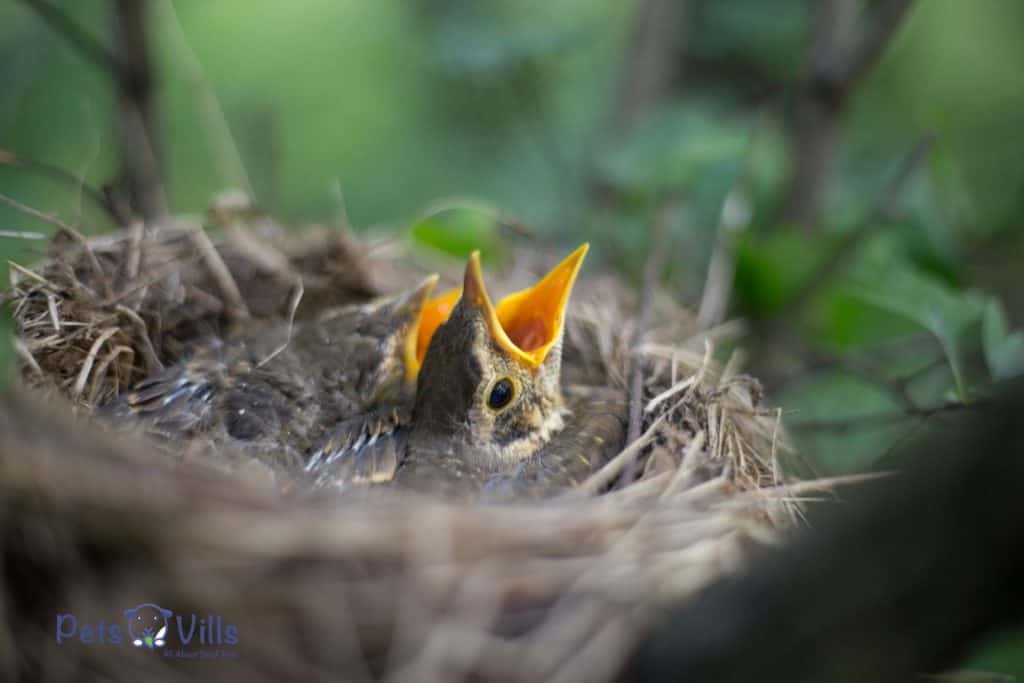
In some types of birds, siblings compete with each it’s to survive. Competition is prevalent when too many babies have hatched, leaving little food for everyone in the nest.
Birds, such as hummingbirds and robins, lay multiple eggs at a time [2] in an attempt to ensure that at least some of their babies will survive.
When all of the eggs hatches, it increases competition for resources within the nest and makes it harder for parents to care for all of their babies.
The strongest among the group become aggressors and kill the weakest to ensure they get to survive the harsh conditions they have been born in.
4. Predators
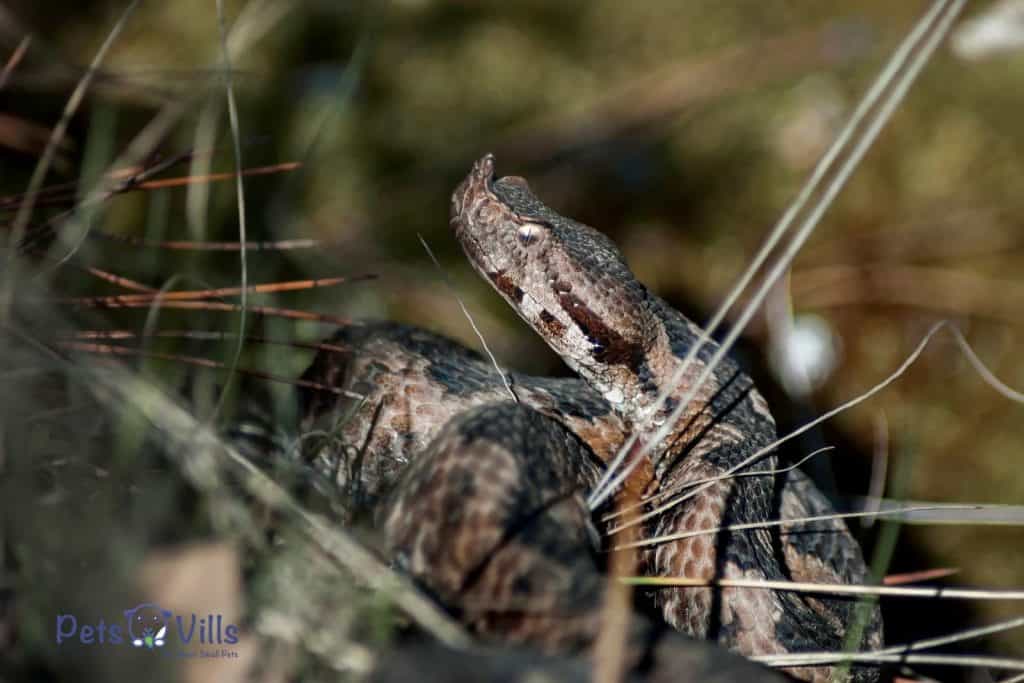
In the wild, it’s all about survival. This includes survival against the more vital species.
Nests can be pretty inviting to many types of predators. As horrifying as it may seem, baby birds are easy predators.
This is one of the reasons why many birds choose to nest in areas with high altitudes. As a way for them to protect themselves and their young.
READ MORE: When Do Baby Birds Start Drinking Water?
5. Environmental Factors
This is where things get pretty complicated since many things about the environment can contribute to the death of baby birds.
6. Harsh Weather Conditions

Extreme weather conditions can lead to overheating or hypothermia, whether hot or cold. Both situations will result in a baby bird’s death.
Extreme weather also affects the insect population in a given environment. Now, you may ask about what this has to do with a baby bird’s death.
The explanation here is quite simple. Insects are the primary source of nutrition for many birds. Extreme weather conditions lead to a decrease in the insect population in a given area.
When the insects decrease, there is a reduced food supply for birds—resulting in starvation for the affected birds.
7. Starvation
The most common reason for a baby bird to die in its nest is starvation.

If the parents feed their babies too infrequently or not enough food, or if the babies cannot eat by themselves due to injuries or deformities, they will starve.
8. Parasites
Baby birds can get weakened by an infestation of parasites [3] like fleas, ticks, mites, and other small insects in a given environment.
Birds with weak immune systems may become diseased or infested with parasites, which can also cause them to die in the nest.
Parasites like these tend to suck fluid out of baby birds – and even adults – to the point of weakening them and, eventually, killing them.
9. Diseases
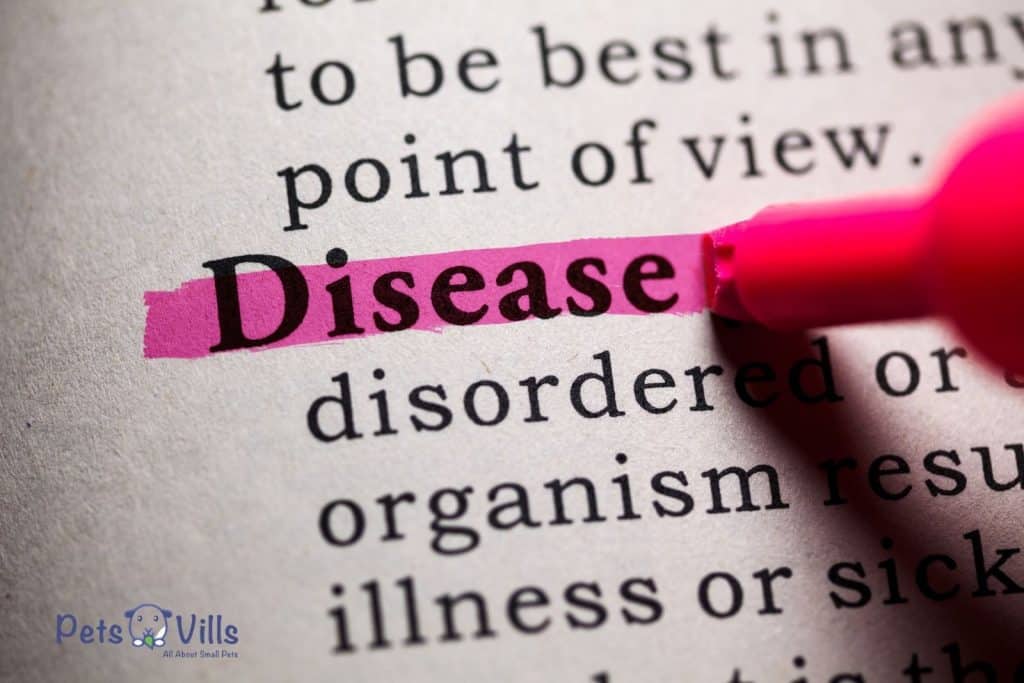
Baby bird deaths due to disease aren’t always apparent. Sometimes diseases can cause internal injuries that don’t become apparent until after the bird has died.
Tiny nests that have been left unattended for a day or two tend to be susceptible to disease-causing organisms.
Baby birds who are left without proper attention from their parents are more likely to succumb to these types of infections.
Migratory birds, which travel far distances, can suffer from exhaustion or dehydration while flying over water during migration seasons.
They fly so high that if they become ill or injured, they might not be able to make it back to the ground before dying.
10. Humans
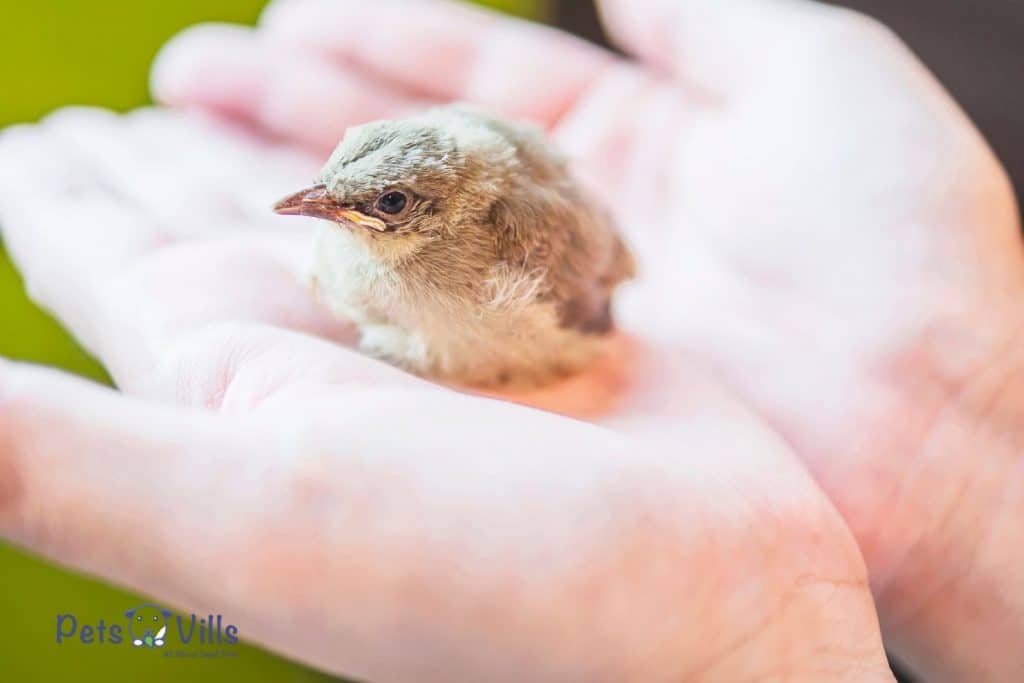
Yes! We, too, can cause the death of baby birds while they are in their nests.
Birds tend to leave their nests whenever they have been invaded or disturbed.
This is an instinct they carry to protect themselves from possible predators.
However, unlike other animals, it can be pretty hard for parent birds to carry their babies, leaving them behind when they feel threatened.
In addition to being abandoned, baby birds are pretty weak after they come out of their eggs. That is why it is rather important to remember to leave the nest alone whenever you see baby birds in them.
Key Takeaway
The ways of the wild are sometimes quite hard to comprehend for us humans. Ultimately though, a lot of these are geared towards survival.
Sad to say, though, that it isn’t always easy to survive in the wild. Nature and the environment play a significant role in the survival of a species, and baby birds are no exception.
Ultimately, the goal of each species is to keep themselves and future generations alive. We can not prevent baby birds from dying in the nest but we can ensure that their environment is as pristine as possible.
Other than that, we all have to let nature take its course.
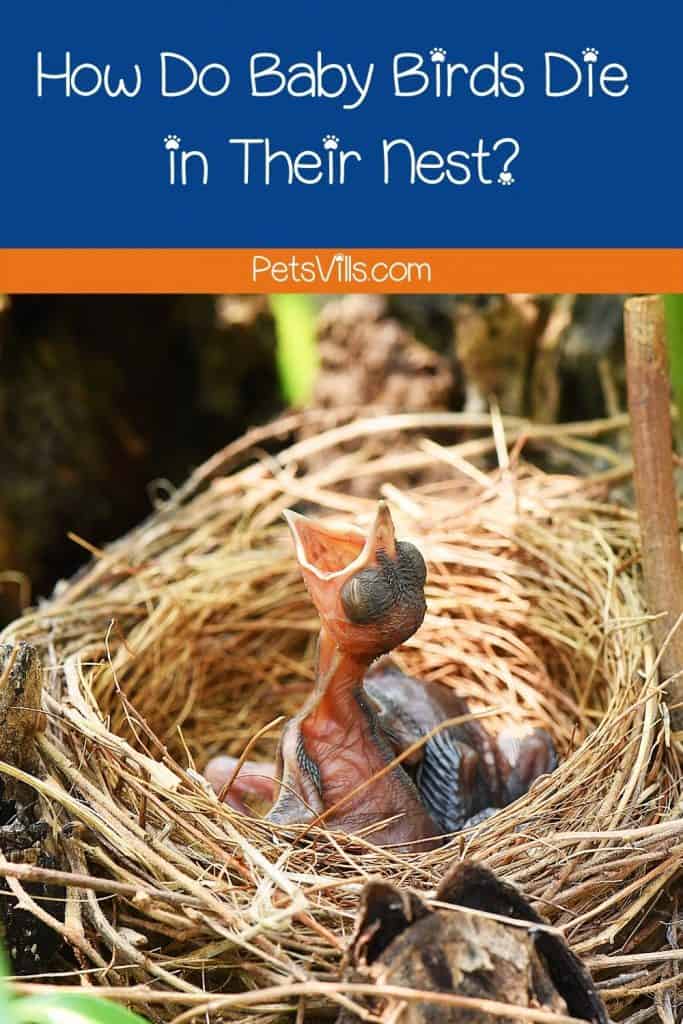
Do you know other reasons why do baby birds die in the nest? Let us know in the comments below!
Resources
- 1. The causes of the mortality of eggs and nestlings of Passer spp. 1994.
- 2. The Story of Robin Eggs [Internet]. journeynorth.org. [cited 2021 Dec 15]. Available from: https://journeynorth.org/tm/robin/EggstraEggstra.html#:~:text=Robins%20usually%20lay%20four%20eggs
- 3. Bush SE, Clayton DH. Anti-parasite behaviour of birds. Philosophical Transactions of the Royal Society B: Biological Sciences [Internet]. 2018;373. Available from: https://www.ncbi.nlm.nih.gov/pmc/articles/PMC6000146/
Barry Stingmore is a British content writer living in Fuerteventura, Spain. An animal lover at heart, he shares his home with a dog and four rescue cats and has a passion for writing about animals big and small.
Barry loves finding answers to your animal-related questions, the more research involved the better! You can rely on him to find the facts.
Find him on FACEBOOK, TWITTER AND Linkedin
Read his latest ARTICLES.
Find more about him HERE.

